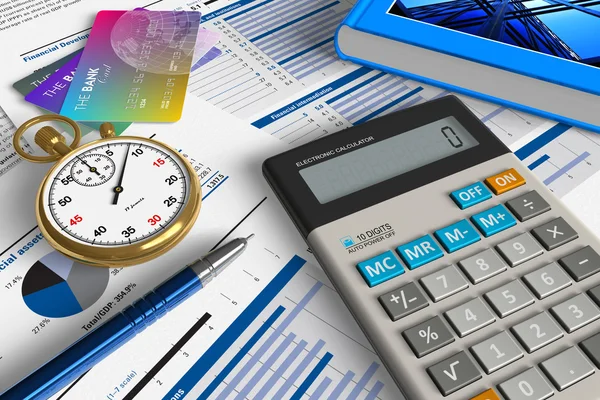Ever wish you could pay less tax? Who doesn’t, right? Here are 8 simple ways to legally reduce your tax bill in Kenya.
8 Smart Tax-Saving Tips for Kenyans
🛡️ Life Insurance:
- Enjoy 15% tax relief on premiums, up to Ksh 60,000 annually.
🏦 Retirement Fund Contributions:
- Get tax deductions up to Ksh 20,000 monthly.
🏠 Mortgage Interest Deductions:
- Deduct up to Ksh 300,000 per year.
🏡 Affordable Housing Schemes:
- Save up to Ksh 96,000 annually.
📈 Unit Trusts and Investment Plans:
- Withholding tax only on dividends and interest; further distributions are exempt.
💝 Charitable Donations:
- Reduce tax liability by donating to tax-exempt charitable trusts.
🍽️ Non-cash Benefits:
- Tax-free benefits up to Ksh 4,000/month for meals, and Ksh 3,000/month for other benefits.
📊 Business Operation Expenses:
- Deduct expenses like rent, transport, and phone charges from side business income.
8 Tax Saving Strategies
The following section will explain these methods further in detail. Besides, you will get the total estimated tax savings. They are allowed for by the income tax act
Buy Life Insurance
Imagine you invest in a life insurance policy for your child’s education. Not only are you securing their future, but you also get to enjoy a tax relief of up to Ksh 60,000 annually.
As an individual taxpayer in Kenya, you are entitled to 15% of premiums paid on life insurance policies with a maturity of at least 10 years. The combined relief in the PAYE tax calculator has a set maximum of Ksh 60,000 per year.
Related:
You can take the policy on education, health, or life. The law allows you to take these ones on yourself, your spouse, or your child.
Contribute to a Pension Fund
Have you considered how much you could save by contributing to a pension fund? Contributing to a pension fund can reduce your taxes and help you save for retirement.
The employee’s deductible contribution is the lesser of:
- 30% of pensionable pay.
- Employee’s actual contribution.
- Ksh.20,000 per month
Once you retire, when receiving your savings lump sum, a sum of ksh 60,000 is deductible from the maximum of a Ksh 600,000 lump sum. The rest of your savings apply to the current income tax bands.
If you opted for an individual retirement scheme or pension scheme, and opt to use your retirement savings for an annuity you can then enjoy further tax benefits on
- The first Kshs 300,000 of the total pensions or retirement annuities received annually are tax-exempt.
- Personal relief is applied to reduce the taxable income.
Finally, if you are a senior person who is over 65 years old, then you are wholly tax-exempt.
Claim Mortgage Interest Deductions
Do you know you can reduce your taxable income up to Ksh 300,000 in Kenya per year? The interest you pay on personal mortgages is deductible from your gross income to get the adjusted taxable income. The total amount allowable per month is Ksh 25,000.
Affordable Housing Schemes
You can enjoy a tax benefit of up to Ksh 96,000 per year by contributing to a registered affordable housing scheme.
It is a plan designed by the government to help individuals to save and purchase their residences. It’s deducted at 15% of your contributions up to a maximum of Ksh 9000 per month.
Invest in unit trusts and collective investment plans
Another tax-saving vehicle for individuals in Kenya is investing in the acquisition and disposal of assets that do not constitute a business activity. According to the Income Tax Act sec 3(2)(a), A “business” includes any trade, profession, or vocation, and every manufacture, adventure, or concern in trade.
You can choose to buy Unit Trusts or other Collective Investment Schemes such as mutual funds. You will only have to pay a withholding tax on dividends and interest income that they will generate. Any subsequent distribution from such investment proceeds to members is also exempted from tax.
Make Charitable donations
You can reduce your tax liability by either establishing or making donations to a charitable trust or foundation.
According to Sec 10 of the 1st schedule of the income tax, contributions to a tax-exempt entity is exempt from tax. Further, in Sec 13, a registered trust is exempt from income tax.
Tax-exempted entities according to the Act are an “institution, body of persons or irrevocable trust, of a public character, established solely for poverty alleviation or distress of the public, or the advancement of religion or education, all for public benefit, shall be tax-exempt.
Non-cash benefits and remunerations
Another avenue for individuals to save on tax liability in Kenya is through non-cash benefits or remunerations. Some of the available methods are.
- An employer can provide meals to employees and limit the cost of these meals to the tax-free amount of Ksh 4,000 per month (Ksh 48,000 per annum).
- Where the value of a benefit, advantage, or facility is Ksh. 3,000 per month or Kshs. 36,000 per annum, then that benefit is not subject to tax.
- Negotiate with your employer to be granted an option for compensation using a stock option. You will be exempted from taxation on capital gains for any increase in the value of the shares, from the date the shares vest (and are taxed) to the date of the actual exercise of the options. However, you should note this is not a common practice in Kenya.
Claim Business operation expenses
Finally, you can consider deducting your side hustle or business expenses on your personal income to adjust your taxable income.
A “business” includes any trade, profession or vocation, and every manufacture, adventure, or concern in trade. All expenses you incur such as rent, transport, and telephone charges are further deductible when further computing final dues in addition to the withholding tax already paid by your client.
3 Tax Saving Methods
If you are an employee or a small business owner you can use these tax planning tips to reduce your tax liabilities to the least while at the same time increasing your tax savings. These methods work by either;
- Adjusting down your Gross income– Your Gross income is the total amount on which you are liable to file income tax during KRA returns. A legally reduced amount means reduced payable taxes.
- Tax Crediting- Adjust the amount of payable tax amount by introducing some activities that have exemptions such as Mortgages and life insurance
- Deferring Tax by Investing in Retirement Plans- Investing in retirement benefits, pensions, or the National Security Services Fund (NSSF), entitles you to deductible reliefs.
In Conclusion
The above methods present some available strategies for you to minimize your tax liability. As a tax management or planning advice, we recommend that you work with a qualified and competent tax consultant to file accurate taxes for you.



